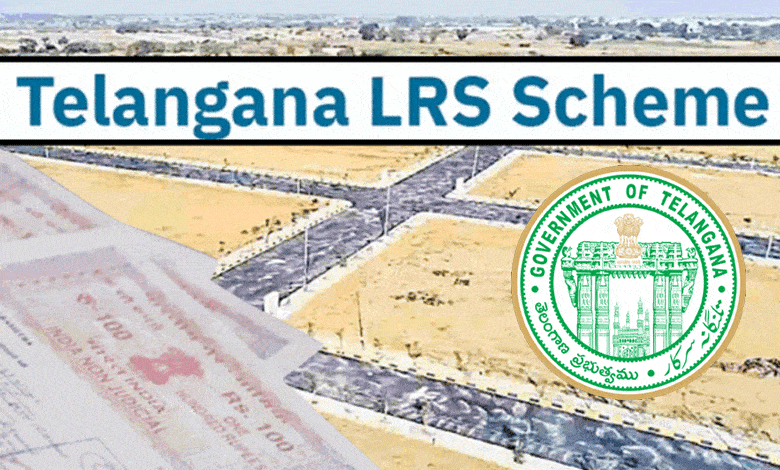Telangana’s LRS Collection Process Faces Major Delays, Target at Risk
This growing workload has led to concerns about the full and timely implementation of the scheme. The challenges of balancing multiple responsibilities may delay the clearance of LRS applications, thus potentially pushing back the overall progress.

Hyderabad: The implementation of the Land Regulation Scheme (LRS) in Telangana is facing delays, with only ₹150 crore collected so far out of the ambitious ₹10,000 crore target set by senior officials for completion by the end of March next year. The responsibility for meeting this target has been delegated to both the Municipal and Panchayat Raj departments. However, the slow pace of collection has raised concerns about the feasibility of achieving the goal in the coming months.
Also Read: Sharp Decline in H-1B Visas for Indian IT Companies Amid US Immigration Policy Changes
Challenges to Timely Completion
Municipal commissioners and staff are already burdened with multiple tasks, including caste enumeration, property tax collection, and now the additional responsibility of conducting a new house survey. With these pressing duties, the process of clearing LRS applications has become increasingly difficult, and experts warn that it may not be feasible to meet the target of ₹10,000 crore within the given time frame.
This growing workload has led to concerns about the full and timely implementation of the scheme. The challenges of balancing multiple responsibilities may delay the clearance of LRS applications, thus potentially pushing back the overall progress.
Potential Benefits of the LRS Scheme
Despite the challenges, the LRS has several potential benefits for the state and its citizens:
- Legalization of Land Ownership: LRS allows citizens to regularize their land titles, providing a legal framework for ownership and preventing disputes in the future.
- Revenue Generation for the State: By collecting fees under the LRS, the state can generate significant revenue to fund infrastructure and development projects.
- Improved Land Utilization: The regularization of land under the LRS helps in streamlining land use and ensures that properties are utilized effectively.
- Increased Property Market Transparency: The scheme encourages formal transactions, contributing to greater transparency in the property market and reducing the number of illegal land dealings.
- Boost to Economic Development: Regularized land can be used for various development projects, contributing to the state’s economic growth and providing opportunities for investors.
Despite the obstacles faced in implementing the scheme, the LRS holds substantial long-term benefits that could improve land records, contribute to infrastructure development, and enhance revenue for Telangana. However, timely execution is crucial to realizing these benefits.
